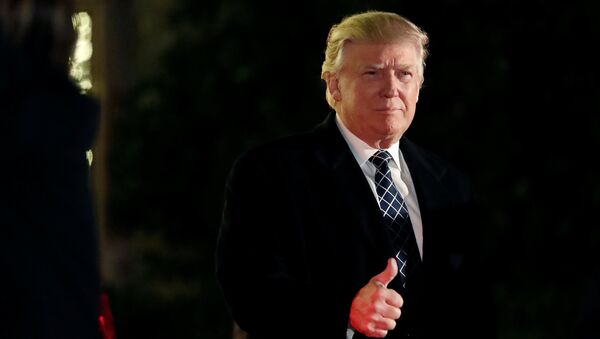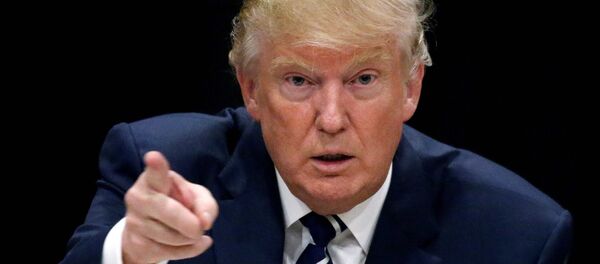"The TPP would be the death blow for American manufacturing. It would give up all of our economic leverage to an international commission that would put the interests of foreign countries above our own," he said in a speech, 'Declaring American Economic Independence'.
In saying so, he echoed the cries of the critics of the trade deals, who said they would end up giving big businesses — which paid considerable sums to lobbyists to gain traction at the negotiations for the trade agreements — great advantages over governments.
"#TPP's defeat is a win for hard-working Americans," says @Teamsters President James Hoffa. #WeStoppedTPP https://t.co/jgcVR7kt4i
— Global Trade Watch (@PCGTW) 11 December 2016
At the heart of the TPP and TTIP deals were arguments over the ability of non-US governments to regulate industries. In Europe, the TTIP gathered huge opposition over food, drugs, environmental and social issues, with critics claiming US companies wanted to water down tough regulatory conditions to allow US companies access to its markets.
Most importantly, the Investor State Dispute Settlement (ISDS) provision would allow companies to sue governments if their goods were not allowed to be sold in those countries. Critics of the deals said that governments alone should have the ability to regulate sales of products or services on behalf of their citizens without fear of economic reprisals.
As we've said all along… EU buckled on 'gender-bending' EDC chemical rules under US, Canadian pressure https://t.co/OSV5iS6dJ6 #StopCETA pic.twitter.com/X5eyrnf45Q
— War on Want (@WarOnWant) 13 December 2016
"Many of us campaigning against TTIP — and its 'evil twin' Canada deal, CETA — recognised it as a plan for the corporate takeover of our democracy, with human rights, jobs and environmental protection sacrificed on the altar of big business profit," said Mark Dearn, senior trade campaigner, War on Want.
Praise for Trump's views on TPP and TTIP, however, is misplaced, according to War on Want.
"Despite his rhetoric, Trump fully believes in deregulation, privatization, and putting profit before people. No wonder stocks in some of the deadliest corporations in the world have soared following Trump's election."
"His economic policy will not help working class communities. He is a divisive force who will tear apart communities and make it harder for them to defend themselves from the business interests he represents. Trump's policies are based not on fairer trade, but on exploiting foreign countries, risking international tensions and dumping economic problems onto others. It is exactly these policies that gave rise to the world wars of the twentieth century," the campaign group said in an open statement.
Trump is opposed to trade deals, because they impose conditions on US companies that — he says — work against US workers and citizens. By following a protectionist policy, he may be able to use US political influence to further the economic cause of US businesses outside of trade deals — but on US terms alone.



